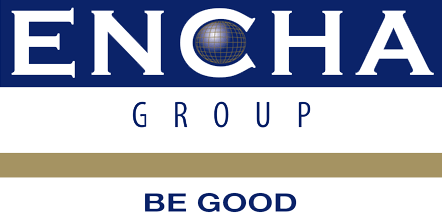

Encha is committed to conducting all its business in a completely lawful manner.
ENCHAETHICS
![]() Encha is opposed to all forms of dishonesty, corruption, bribery, fraud and misrepresentation.
Encha is opposed to all forms of dishonesty, corruption, bribery, fraud and misrepresentation.
Encha people (founders, executives and employees) are required to withdraw from any transaction where they are expected to pay a bribe or act in a dishonest manner.
![]() Encha is committed to the highest ethical standards in the conduct of all its
business.
Encha is committed to the highest ethical standards in the conduct of all its
business.
![]() Encha deals with all stakeholders (shareholders, investors, associates,
directors, employees, customers, partners and service providers) in an open, transparent,
truthful, honest and fair manner.
Encha deals with all stakeholders (shareholders, investors, associates,
directors, employees, customers, partners and service providers) in an open, transparent,
truthful, honest and fair manner.
![]() Encha people all have special responsibilities when they deal with the
Government and Public Sector Organisations.
Encha people all have special responsibilities when they deal with the
Government and Public Sector Organisations.
![]() Encha people must ensure that in these circumstances, agreed terms are
commercially sound, fair and certainly not unscrupulous.
Encha people must ensure that in these circumstances, agreed terms are
commercially sound, fair and certainly not unscrupulous.
![]() Encha people must at all times, not only have regard to their own interests
and those of Encha, but also our national interest and the broader interest of the African
continent and generally the creation of a better world.
Encha people must at all times, not only have regard to their own interests
and those of Encha, but also our national interest and the broader interest of the African
continent and generally the creation of a better world.
![]() Encha people strive at all times to treat each other with respect and dignity,
irrespective of their level of responsibility within the company.
Encha people strive at all times to treat each other with respect and dignity,
irrespective of their level of responsibility within the company.
![]() Encha enthusiastically endorses the doctrine that all people are equal and
nobody has the right to undermine the human dignity of another.
Encha enthusiastically endorses the doctrine that all people are equal and
nobody has the right to undermine the human dignity of another.
![]() Encha people must treat all people they encounter in the course of business
with humility and respect. This can be done without compromising our commercial interests and
objectives. We must be both engaging and piercing without being rude, inconsiderate or
pompous.
Encha people must treat all people they encounter in the course of business
with humility and respect. This can be done without compromising our commercial interests and
objectives. We must be both engaging and piercing without being rude, inconsiderate or
pompous.
![]() If you encounter conduct of an Encha employee or officer, or any of its
subsidiaries and associate companies which is below any of these standards, please contact us
by clicking on the link below.
If you encounter conduct of an Encha employee or officer, or any of its
subsidiaries and associate companies which is below any of these standards, please contact us
by clicking on the link below.
![]() If, on the other hand, your encounter proves that they live up to EnchaEthics,
then we would also like to hear from you.
If, on the other hand, your encounter proves that they live up to EnchaEthics,
then we would also like to hear from you.
ARTICLES ON ETHICS

OPINION | Organisations with stronger ethics perform better. Here's why
14 April 2020 | By Leon van Vuuren & Paul Vorster
Published on fin24
The Ethics Institute recently conducted research to determine the extent to which organisational ethical culture contributes to ethical failures. The survey was done in 19 medium to large private sector organisations across all industries. A total of 2 791 employees participated in the survey

Proudly SA develops tender monitoring system to track government compliance
29 May 2017 | By Megan Wyngaardt
Published in Creamer Media's Engineering News
Buy local advocacy campaign Proudly South African (SA) has developed an in-house tender tracking system to monitor government’s compliance with its own mandate to make local procurement a priority.

Why it is so Hard to Train Someone to make an Ethical Decision
11 January 2017 | By Eugene Soltes
Published in the Harvard Business Review
One of the conundrums of ethical decision making is that many more moral decisions that are quite straightforward - even easy - to resolve in the classroom or during training exercises seem far more difficult to successfully resolve when confronted during actual day-to-day decision making.